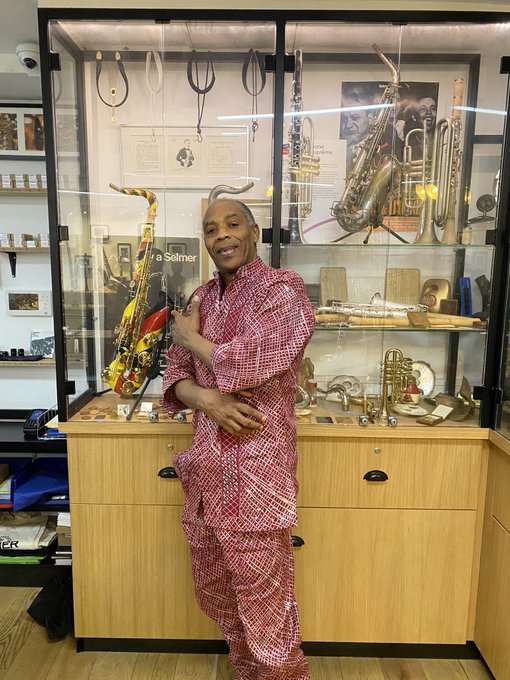Famous musician Femi Kuti has called on young Nigerians to abandon their plans to emigrate, often referred to as “japa,” and instead focus on improving their country. Kuti spoke passionately during the 2024 Felebration festival, an event celebrating the life and legacy of his father, the legendary Fela Kuti.
Kuti emphasized the importance of commitment and resilience, stating that many developed countries, including those in Europe and North America, did not achieve their success by running away from challenges. Instead, they fought fiercely for their freedom, enduring civil wars and significant struggles along the way.
In his address, Kuti urged the youth to recognize their vital role in shaping Nigeria’s future. He highlighted that change cannot happen overnight and requires active participation from everyone. He stated, “We must understand that we have to stay here and fight for a better country that we love.”
Kuti’s remarks come at a time when many young Nigerians are considering leaving the country in search of better opportunities. The phenomenon of “japa” has become a common term among the youth, referring to the trend of emigrating in search of greener pastures.
He encouraged young people to find inspiration in the achievements that have emerged from Nigeria, such as the iconic Fela Shrine, which stands as a testament to the country’s rich culture and resilience. Kuti pointed out, “We did not build the Fela Shrine in Los Angeles or in London; we built it in Africa.”
Kuti drew parallels between Nigeria and the historical struggles of other nations, noting that Europe and America’s greatness was forged through hardship. He reminded his audience that these regions faced hundreds of civil wars and conflicts before they could thrive.
“Do you think they ran away? No, they fought; Europe fought hundreds of civil wars; dem just dey kill themselves. America had one of the worst civil wars in history, which is why till today Americans still carry guns,” he explained.
Kuti’s reference to history serves as a reminder that significant changes often come at a cost. He encouraged young Nigerians to stay and be part of the fight for a better future instead of looking for escape routes.
Kuti also spoke about the contributions of those who hold dual citizenship. He cited his son, Made Kuti, as an example. Despite being a British citizen, Made chooses to live and work in Nigeria, emphasizing his commitment to the country.
“Made is a British citizen but where is he? He is in Nigeria and he cannot be anywhere else. What does he want to do there?” Kuti asked rhetorically. He further highlighted the importance of local engagement, noting that his son would only travel abroad for work but always returns to Nigeria.
Kuti’s comments underline a crucial point: no matter where one may hold citizenship, there is an inherent responsibility to contribute to one’s homeland. He expressed a desire for the next generation to take over and continue the legacy of the Kuti family in promoting Nigerian culture and music.
Kuti’s passionate appeal resonates with the broader call for youth empowerment and involvement in nation-building efforts. In recent years, many young Nigerians have taken to social media and protests to voice their concerns about governance, corruption, and societal issues.
The #EndSARS protests of 2020 serve as a prime example of the youth’s capacity to mobilize for change. The protests were a response to police brutality and broader systemic issues within Nigerian society. Although the movement faced significant challenges, it demonstrated the potential of Nigerian youth to influence national dialogue and push for accountability.

